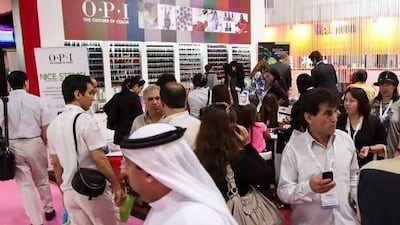Vanity, thy name is man.
Over the next five years, this country's men are expected to drive a 13 per cent increase in per capita spending on personal care.
Euromonitor International estimates people living in the UAE will spend more than Dh1,280 (US$348) on personal care products in 2017, compared with last year's Dh1,131.
It starts with the male scalp.
According to Euromonitor, a UK-based research group, the biggest influence on the rising sales will be men buying more premium hair care products.
The growth will be even more stark in Saudi Arabia, where men's premium hair care, men's mass hair care and men's skin care all appear on a list of the sector's top five growth factors.
"Men's toiletries and basically specialised men's products are seeing very high growth," said Sana Toukan, Euromonitor's research manager for the Middle East.
Sales of premium men's hair care products are expected to grow by 25 per cent this year in Saudi Arabia and by about 16 per cent in the UAE.
Euromonitor pegs the total value of the UAE market for personal-care products at Dh3.808 billion last year, Dh4.015bn this year, and Dh4.879bn in 2017.
Ms Toukan said an increase in the number of men's products for sale is behind the per-capita rise, buttressed by a surge in advertising.
"If you look around Dubai at the big billboards on Sheikh Zayed Road for example, a lot of TV advertising, a lot of sampling in stores ... it is becoming more of a trend that men are buying more specialised products and they are being pushed by multinationals to buy more specialised products," said Ms Toukan.
Dubai-based Kaya Skin Clinic is also witness to the trend. A spokesman said that men have increased from 12 per cent of the clinic's clients in 2011 to 20 per cent this year.
The beauty trend will come into focus next month in Dubai at one of the world's largest trade fairs for beauty, hair and fragrance products.
Beautyworld Middle East 2013, which runs from May 28 to 30 at the Dubai International Convention and Exhibition Centre, is expected to have a 27 per cent increase in space and a 25 per cent increase in exhibitors from last year.
Other factors lifting the sector over the next five years will include more product launches, with multinationals increasingly focusing on the Middle East as traditional markets such as western Europe slump.
The modernisation of the retail sector will also play a role.
"This is especially important for Saudi Arabia. Although your hypermarkets and supermarkets have the biggest share of sales of beauty and personal care, interestingly enough still in Saudi and the UAE there has been an increase in the share of beauty specialist retailers who are actually located in malls," Ms Toukan said.
More companies are creating products tailored to the Middle East market, such as whitening products, which are becoming more popular. And as the economy recovers, people will have higher disposable incomes.
Overall, says Euromonitor, more men are becoming beauty fans, but women are still the bigger spenders.


